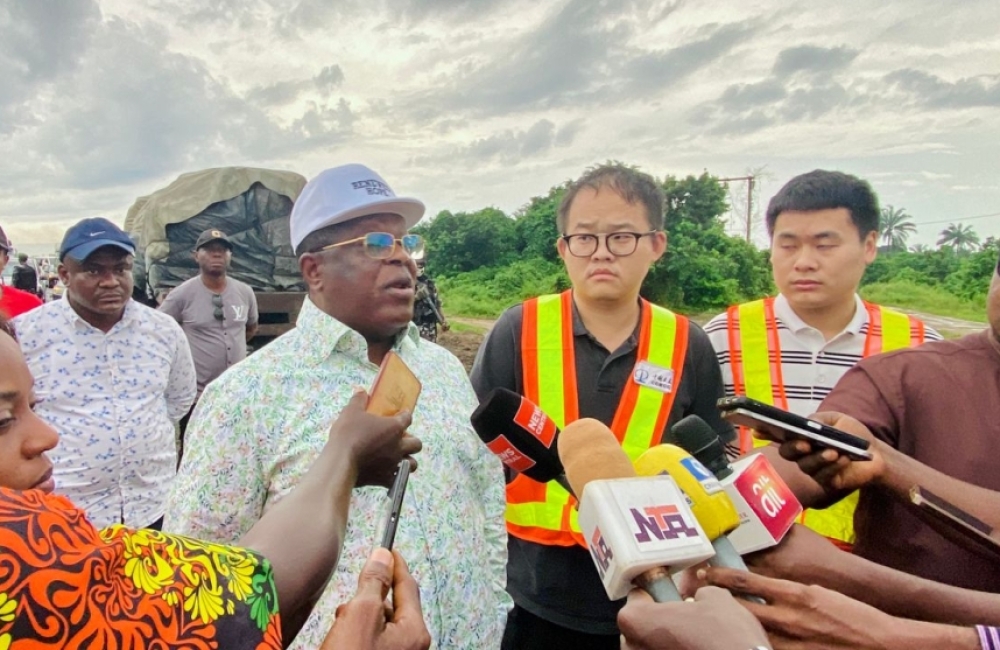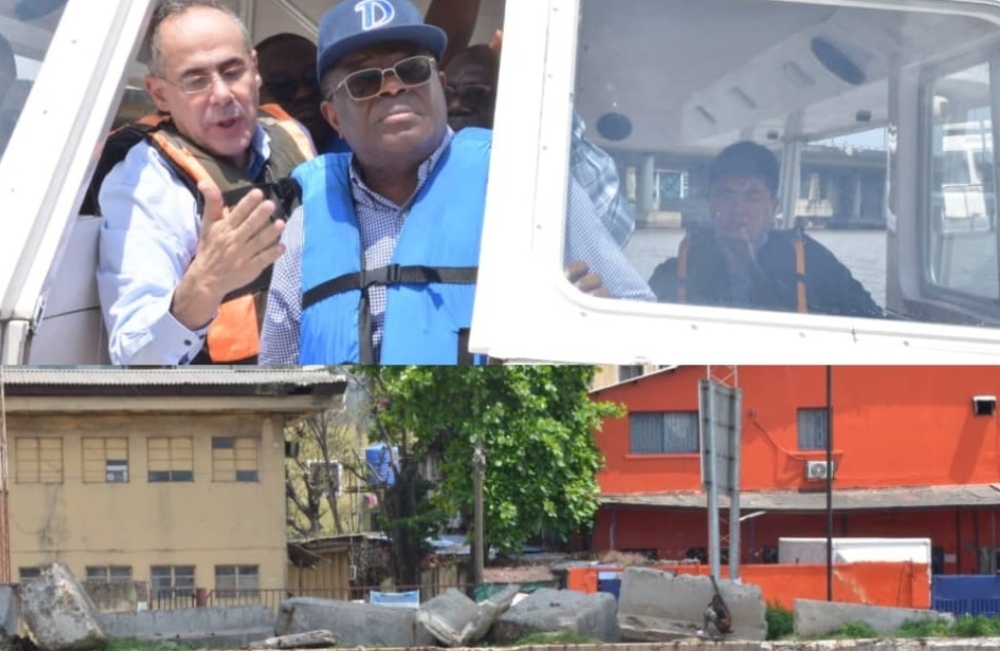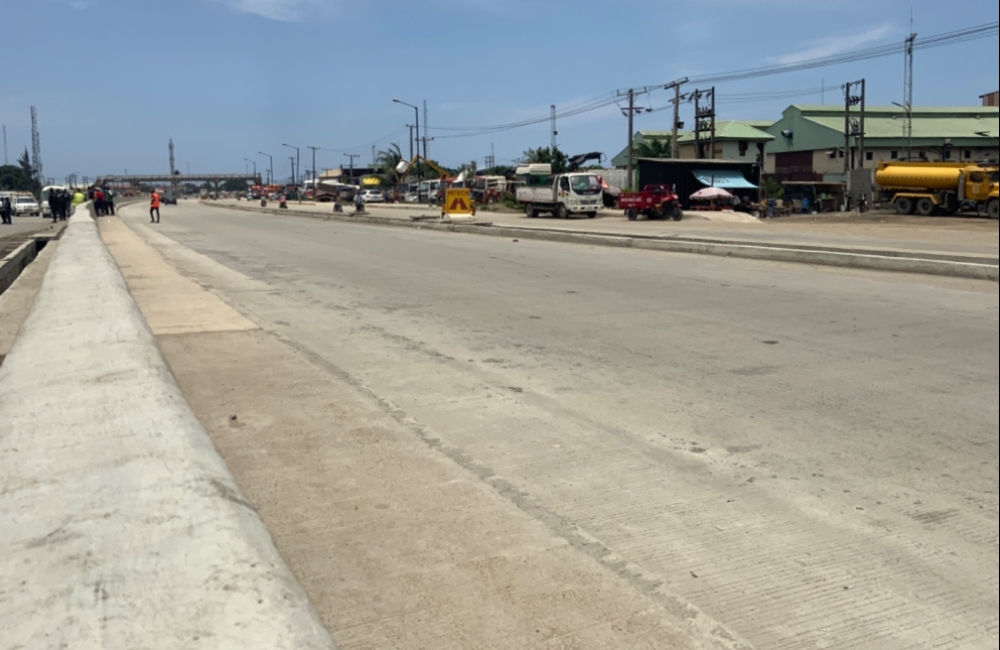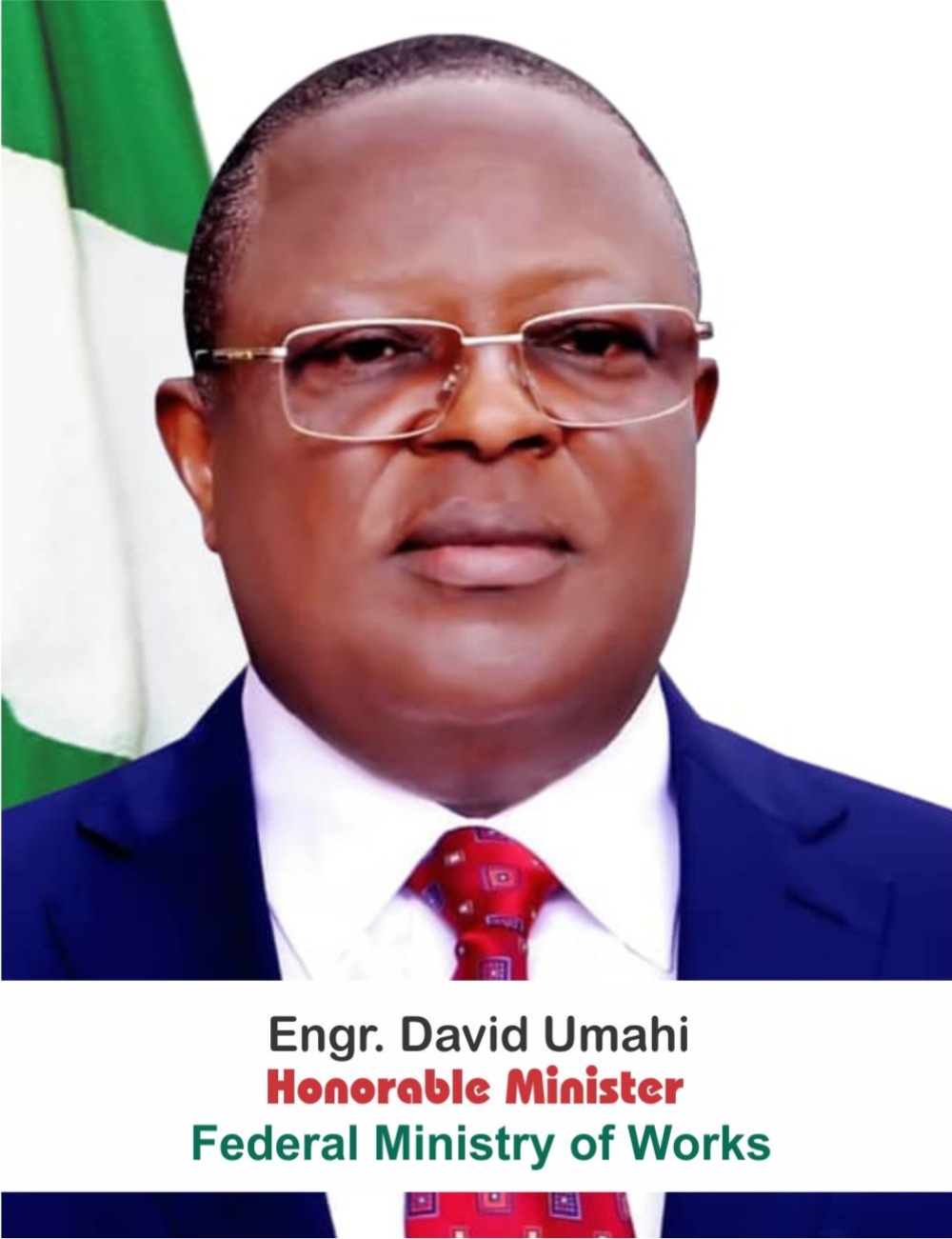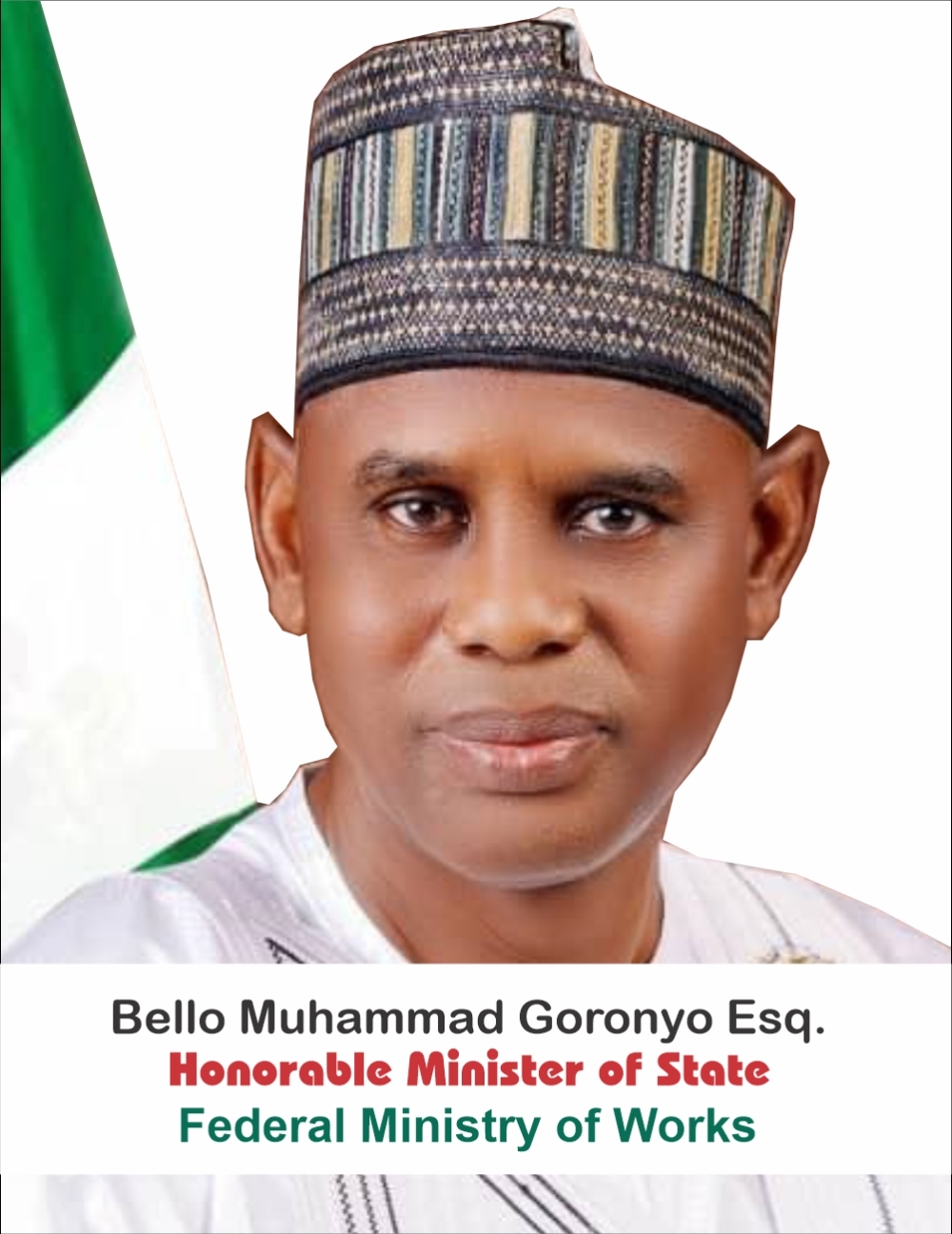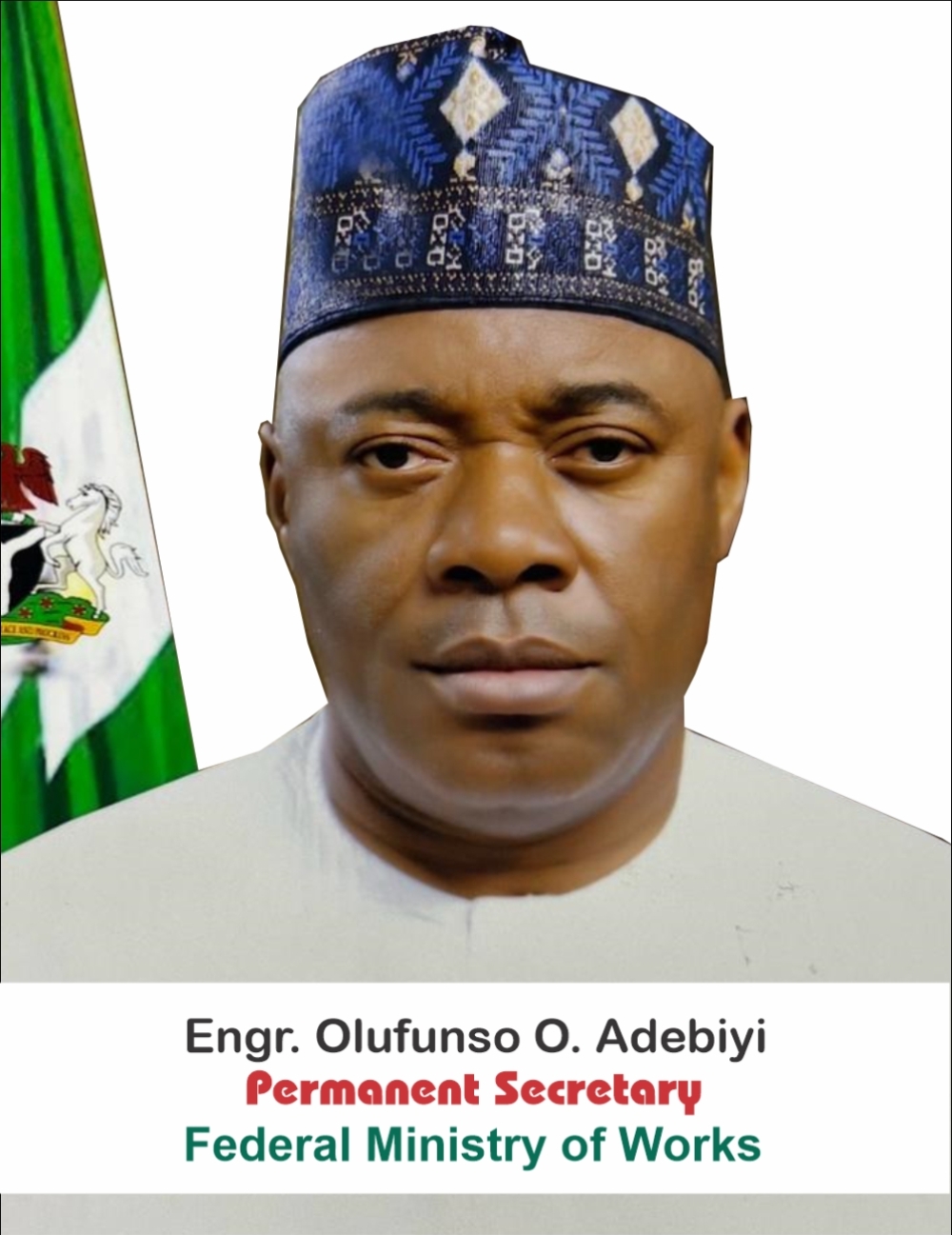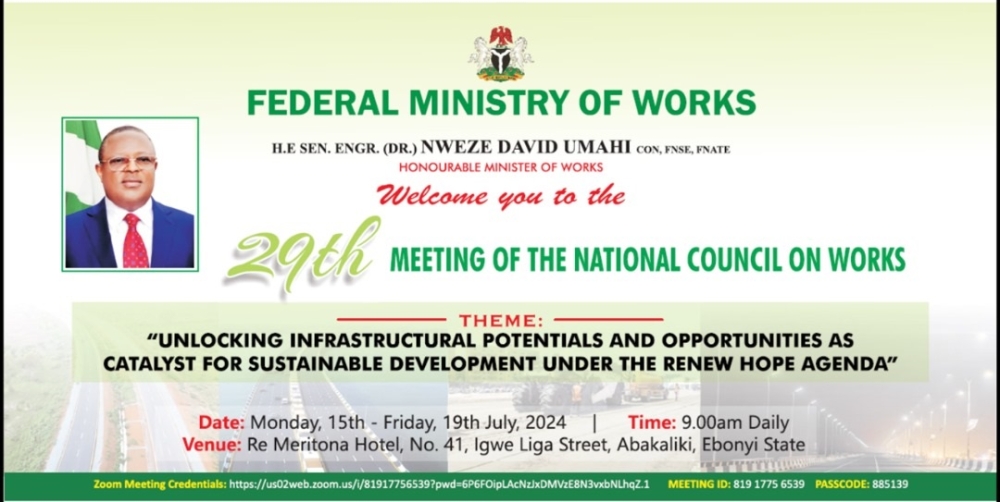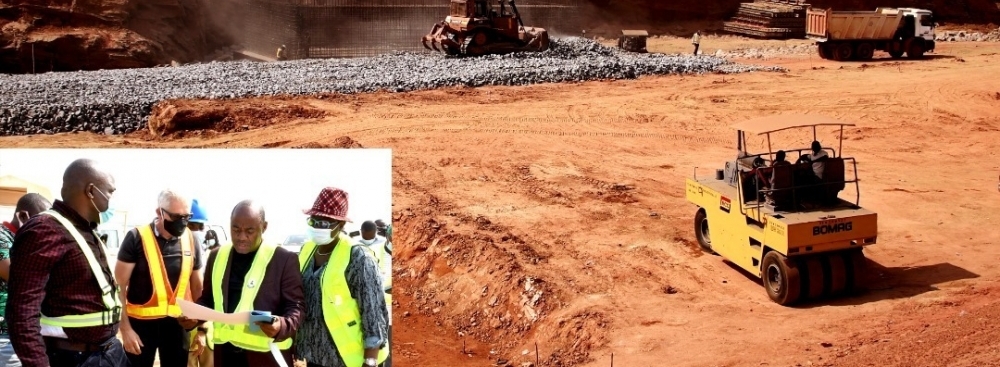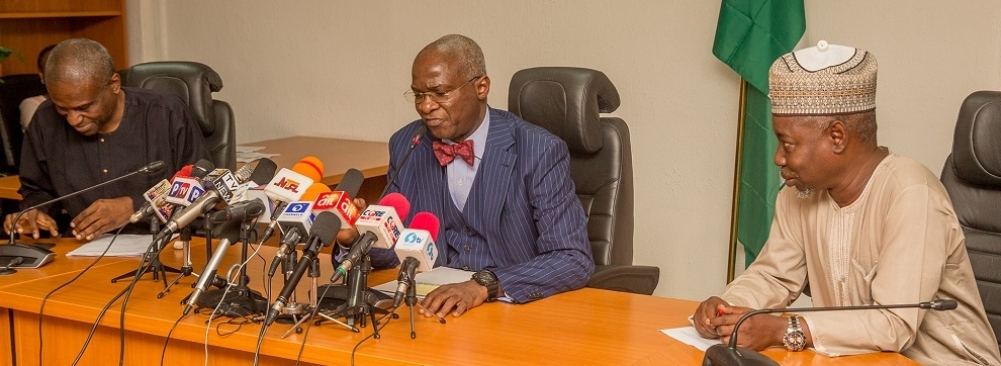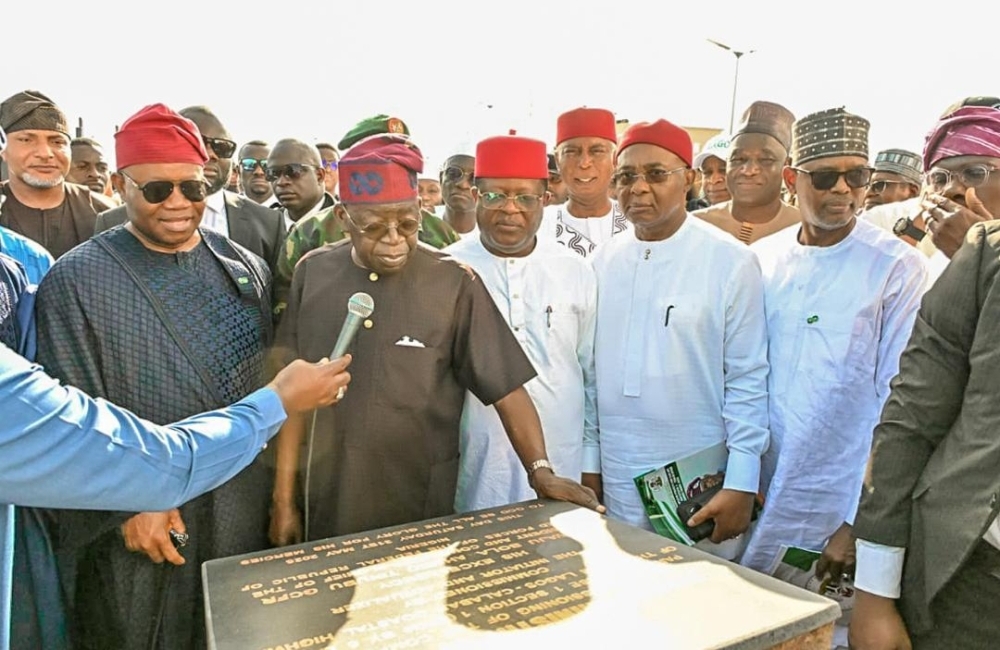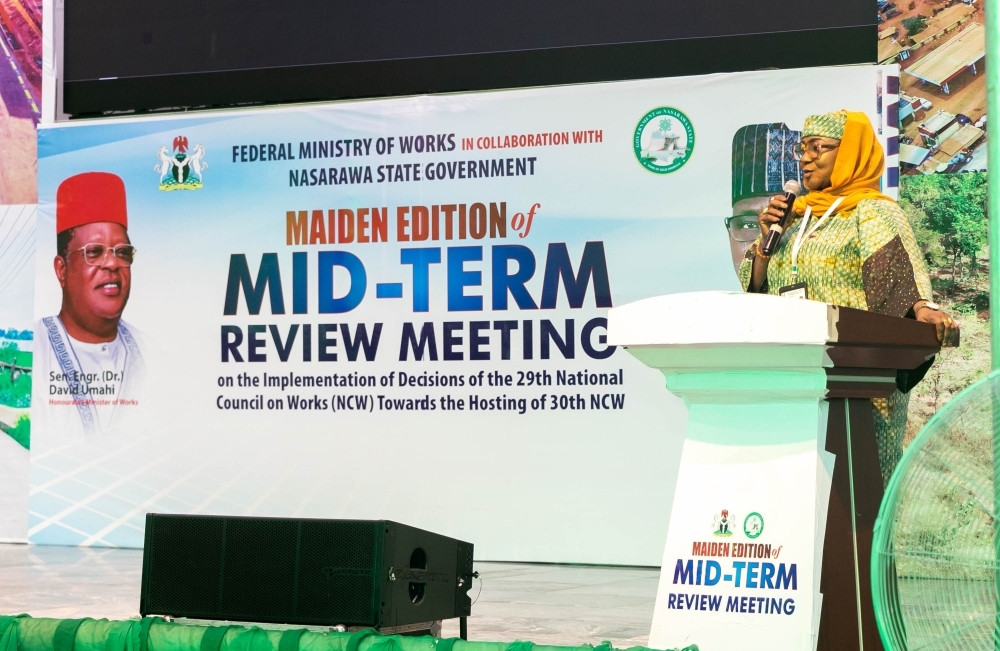Press Briefing On Power Sector State Of Play, Next Steps And Policy Directions By The Honourable Minister Of Power, Works And Housing, At The Ministry Of Power, Works And Housing Headquarters
I believe that most Nigerians know that the Power sector has been privatized and that this happened since November 2013.
What I believe most Nigerians have struggled with is an understanding of:
a. The organizational and operational structure of the Power sector after privatization;
b. An understanding of who to turn to when service is not good;
c. And perhaps what to expect the privatization to give to the sector.
These are some of the issues I propose to address in this briefing, and I intend to highlight the challenges we have encountered, those we have solved, those we are working on, the progress we have made, what needs to be done and who has the responsibility to do what.
Perhaps the best place to start is to go back to the beginning, to recall what we had before privatization; and then compare it with post-privatization, in order to facilitate the understanding of the ordinary Nigerian.
The first thing to deal with is to explain the power and supply process (which is sometimes called the value chain) as comprising 3 (THREE) main parts:
a.Power Generation – Which is where electricity is produced;
b.Power Transmission – which is the system of substations, towers and lines that convey the power from the power generation sites to the distribution sites;
c.Power Distribution – which is the final leg that supplies the power to end users, homes, offices, factories, markets, etc, Meter the power consumers, BilI them and collect the bills.
Before the privatization, all these 3 (THREE) functions of (a) Generation, (b) Transmission and (c) Distribution were substantially Government business, which was run as a monopoly through Power Holding Company of Nigeria (PHCN).
This means that Government generated the power from various gas and hydro power plants, transported the power from hundreds of substations across Nigeria and distributed the power from hundreds of distribution stations nationwide, and supplied meters, billed customers and collected the money.
Privatization has changed this.
Government has sold some of the Power generation plants to 6 (SIX) Generation Companies (GENCOs), and sold the Distribution Assets to 11 (ELEVEN) Distribution Companies (DISCOs).
It is the DISCOs after privatization who now have responsibility to supply power to the consumers, provide meters and collect the money.
Government has retained the responsibility of transmission (transport of power) in a company called Transmission Company of Nigeria (TCN).
From this, it must be obvious to the ordinary person that supply of power is now a private business in the hands of the owners of the DISCOs.
But because of the critical and sensitive nature of power supply, Government has not left the supply of power supply solely to the DISCOs. Government at Federal, State and Local Government, and the former employees of the PHCN hold 40% of the shares of the DISCOs.
In addition, Government is responsible for regulating behaviour and compliance through the Nigerian Electricity Regulatory Commission (NERC), which is like what the Central Bank (CBN) is to the Banking Sector, or what the Nigerian Communication Commission (NCC) is to the Telecoms sector or the Nigerian Broadcasting Corporation (NBC) is to the media, and I will say more about this.
Government, during the privatization, also took steps to perform its support and enabling role to private sector by setting up a company called the Nigerian Bulk electricity trading company (NBET).
What NBET does is to give confidence to generation companies by guaranteeing to buy bulk power, which is an incentive to GENCOs to invest in building more Power plants because there is an assured buyer.
In real terms therefore, the power that the DISCOs sell does not belong to them; they are only distributors for a commission under a vesting contract with NBET, who is the person who pays the GENCOs for the power, and vests them in the DISCOs.
All of these arrangements arise from the Electric Power Sector Reform Act (EPSRA) of 2005 which led to the privatization which took place in 2013.
That law, which regulates the power sector, recognizes certain categories of persons who can buy power from a GENCO and they are:
A. A distribution company (DISCO)
B. A bulk trader (NBET)
C. An eligible customer declared by the Minister under Section 27 of the Act.
Interestingly no DISCO is buying power directly from the GENCO for reasons only known to them.
They are content to allow the government bulk trader pay the GENCO for the power and receive it under the vesting contract which they are not properly performing because they remit only about 15% to 20% of the power they receive, and have accumulated debts of about N859 Billion (Principal and Interest) owed to NBET. I will also come back to these in the next steps and policy directives I will issue.
Interestingly, the EPSRA does not make it mandatory for any Nigerian to receive power only from the DISCO or to use only public power.
That is why it is not an offence for Nigerians to buy generators, inverters or solar systems which are, of course, more expensive than the power which NBET buys from the Gencos and vests in the DISCOs to distribute to consumers.
Therefore, in answer to the question of who to turn to when you have no meter, no supply of power, or your transformer is bad; it is the discos, who are your service providers, that you should turn to. They are the ones who bill you and collect money from you.
I must of course point out that, from time to time, there are failures in the system such as gas supply shortage or transmission failures.
This is not the fault of DISCOs, but any fair-minded observer will admit that this does not happen every day and this has nothing to do with supply of meters or the proliferation of estimated bills.
As to where we are today I can report progress in generation, transmission and distribution post-privatization.
1. Generation of power has improved from 4,000 MW (approx) in 2015 to 7,000 MW (approx) in 2018 averaging an increase of 1,000 MW (approx) per annum and we expect to add 455 MW (Azura); 215 megawatts (Kaduna), 240 MW (Afam III); 40 MW (Kashimbilla); almost a total of 954 MW in 2018; and 700 MW (Zubgeru) 480 MW (Okpai II) about 1,150 MW projected for 2019, and the GENCOs are undertaking various repairs, rehabilitation and expansion that will bring on incremental power.
2. Transmission has increased from 5,000 MW (Approx) in 2015 to 7,124 MW (Approx) in December 2017 averaging 1,062 MW per annum increase in transmission capacity. TCN currently has about 90 Transmission projects in various stages of construction and many are to be completed this year.
So, we can transport what the GENCOS generate and there is a Transmission Expansion plan 2018 to 2028 which Government is committed to implement.
3. Distribution has increased from 2,690 MW (Approx) in 2015 to 5,222 MW Approx in 2018, averaging an increase of 844 MW per annum because the DISCOS have also done some work.
But as it is now obvious, from 2016 when the DISCOs complained about lack of enough power to distribute, the problem today is that the DISCOs cannot distribute all of the Power that is available, leaving the sector with an unused capacity of 2,000 MW (Approx), with the approximately 1,150 MW projected to come this year and 2019.
This is not a time to trade blames, because there is enough to go round; rather it is a time to reiterate everybody's responsibility and urge all of us to brace up, to do what we are obliged to do, which is to serve the people.
I suspect that these facts may appear like a red flag to the bulls of anti-privatization, but I remain convinced that privatization is the way forward.
Privatisation has brought us better value in broadcasting, newspapers, telecoms, banking and other sectors and I remain convinced that it will deliver in power.
The fact is that like in telecoms, banking, newspapers and other sectors, those who cannot compete will concede as some banks, and telecoms companies did without bringing down the sector.
What is government doing?
As a facilitator of business and enabler of the private sector, Government has done the following:
A. Through the Central Bank of Nigeria (CBN) government has made available the sum of N213 Billion to the power sector at concessionary interest rate below market rate to GENCOS and DISCOS.
Regrettably because of the source of funds, conditions such as the opening of Letters of Credit were attached to secure performance of the purpose for which the money was meant;
Some DISCOS have not taken the money and instead have gone to court thereby frustrating full disbursement, and recently the NERC has revealed unauthorized use of the money by Ibadan DISCO and taken some regulatory actions;
B. Government has responded to claims of debts owed by MDAs to DISCOs before this administration alleged to be in the region of upwards of over N70 Billion.
At the cost of government, several hundreds of thousands of bills were very painstakingly verified and government ascertained that N27 billion was owed by federal MDAs to DISCOS.
The payment was by a set-off of this amount against the sum of N859 billion owed by DISCOs to NBET (a government agency) to reduce that debt;
C Prior to the tenure of this administration and during it, GENCOS and gas suppliers who produce the power were being underpaid by NBET because DISCOs were under collecting or under remitting, such that GENCOs were getting only about 20% of their invoices for power they generated.
Government created a N701 Billion Payment Assurance Guarantee for NBET to ensure that payments to GENCOS improved and this has now increased to 80% payment on invoices, up from 20%, in the hope that with improved power production, DISCOs will collect and remit more;
ii) As things stands my office still receives daily reports by text, e-mails and letters of "exhorbitant" bills by Discos to consumers without meters, but the remittance by Discos to NBET is not increasing;
iii) NBET is also owing the GENCOs N325.784 Billion which can be settled if NBET collects what the Discos are owing;
iv) Of course it is important to point out that some other Government institutions are owing the Discos and there are individuals and corporations who are by-passing meters and stealing energy
All these point to a situation that can be resolved if everybody does what is right.
D In order to assist in the evacuation of 2000 MW (the deficit between what the GENCOS can produce which is 7000 MW and what the DISCOs can distribute which is 5000 MW) the Government asked the DISCOs to submit their transformers and equipment requirements.
As 40% shareholder, Government has committed to invest N72 Billion for procurement of equipment and installation to help get the 2,000 MW to consumers and this process has been advertised with encouraging responses from original equipment manufacturers, which are being evaluated.
E In order to bridge the metering gap, Government has settled an inherited court case and is able to make available N37 billion to Meter Asset Providers (MAP) under regulations made by NERC to license meter entrepreneurs to help supply meters that the DISCOs are under contract to supply but are as yet unable to fully discharge.
The regulations require DISCOs to contract with their MAPs in order to promote a harmonious relationship and reduce friction and disputes.
F In order to accelerate supply to industries and heavy consumers, Government, through my office, pursuant to powers conferred by Section 27 of the EPSRA declared eligible customer, which was to enable people who consumed 2MW and above, who were not getting power because of lack of distribution equipment, invest in the provision of the equipment and take power directly from GENCOs who had the power.
The DISCOs initially resisted and are currently giving reluctant co-operation to a policy meant to supply power to people they cannot supply.
G All of you will remember of course that NERC, (not the Ministry of Power or the Minister ) , approved a Tariff increase for the Sector. When the public complained it was I, (not the Discos), who stood in the forefront of explaining to the public. Yet it is the Discos who collect the tariff.
This is a picture of the industry as best as I can summarize the facts.
In the face of this picture, where we have power to sell, with more to come, the number of complaints coming to Government for meters, which the DISCOs should supply, and for estimated billings, and mass disconnections when not everybody is owing cannot continue.
Government must act, and will do so. The DISCOs bought these assets with their eyes opened, and they must compete to deliver or exit.
Small businesses who need very little power are not getting enough because the DISCOs cannot take the power to them.
The investment of GENCOs is threatened because they cannot utilize the capacity they have installed.
In order to improve service to small businesses, Government, acting through the Rural Electrification Agency (REA) is linking Small Power Entrepreneurs with markets like Ariaria in Aba, Sabon Gari Market in Kano, and Sura Market in Lagos.
The markets contain approximately 37,000, 13,000, and 1,047 shops respectively, which are being metered by the small entrepreneurs who have offered to replace their generators with more efficient power and meters.
There are 15 (fifteen) markets in all which if successfully implemented would provide power to 85,485 shops, empower 205,000 SMEs and create 2,000 jobs during the installation and after in operation and maintenance.
The DISCOs are agitating that this should not happen , yet they offer no solution. I want to use this opportunity to refer to Section 71(6) of EPSRA, which I will discuss later and say clearly that the Law did not anticipate exclusivity for any DISCO.
Clearly, unless the DISCOs have a license that is endorsed as EXCLUSIVE, it is clear that no DISCO has exclusivity over its franchise area.
It is obvious that the law did not intend to replace Government monopoly of PHCN in the Power Sector, with a private monopoly of businessmen.
Whenever there is poor service, Government, as a matter of Policy and Public Interest is able and entitled to act and invite new players to fill the gap.
The truth is that the generator sellers, inverter sellers are already filling this gap without protest.
What these entrepreneurs therefore bring is, to replace multiple, inefficient, unhealthy and expensive generators with simple efficient and environment friendly solutions and meters.
This is what the public interest demands.
Policy Directions and Next Steps
It is not my intention, or that of Government, to take over the business of DISCOs. On the contrary, it is Government’s desire to see DISCOs thrive and flourish in a competitive environment.
In the period when they are not yet ready, willing, or able, life must go on and we must find solutions and substitutes as we have seen in other sectors. Therefore, pursuant to the provision of Section 33 of the EPSRA which provides that:
33 (1) The minister may issue general policy directions to the commission (NERC) on matters concerning electricity, including directions on overall system planning and co-ordination, which the commission shall take into consideration in discharging its functions under Section 32 (2) provided that such directions are not in conflict with this Act or the Constitution of the Federal Republic of Nigeria.
And
Section 32 (1) (a) – (g) provides for what the commission (NERC) is set up to do, which includes:
(a) to create, promote and preserve efficient industry and market structures and to ensure optimal utilization of resources for the provision of electricity services;
(c) to ensure that an adequate supply of electricity supply is available to consumers;
And
Section 32 (2) (a) – (g) which specifies functions for the commission (NERC) to:
(a) promote competition and private sector participation, when and where feasible.
(d) license and regulate persons engaged in the generation, transmission, system operation, distribution and trading of electricity.”
It is clear that a combined reading of these provisions show that it is necessary to direct NERC to step in to:-
Ensure that DISCOs improve on their distribution equipment and capacity to take up the available 2,000MW in order to optimize the use of the electrical resource produced by the GENCOs, and I direct NERC to immediately act in this regard.
Enforce the contract of DISCOs to supply meters and act to ensure the urgent speedy supply and installation of meters with a view to eliminating estimated billing and promote efficient industry and market structures;
Stop DISCOs from threatening private entrepreneurs from entering the market to supply consumers whom the DISCOs cannot supply and to license such persons subject to terms and conditions in order to “promote competition and private sector participation” and avoid a private monopoly of power.
3a) Section 71(6) dealing with Terms and Conditions of licenses clearly shows that no exclusivity or monopoly was intended for a license holder such as GENCOs or DISCOs when it provides that:-
“unless expressly indicated in the licence, the grant of a license shall not hinder or restrict the grant of a license to another person for a like purpose and, in the absence of such an express indication, the licensee shall not claim any exclusivity, provided that the commission may allow a licenced activity to be exclusive for all or part of the period of the licence for a specific purpose, for a geographical area, or for some combination of the foregoing.
To the best of my knowledge, the commission (NERC) has not issued any exclusive license.
If we take into consideration that after 5 (FIVE) years of privatization, there are still people and businesses who do not have power or enough power, common sense and public interest demands that we must not resist ordinary people, small businesses like shops and markets from seeking alternative sources of energy.
The truth is that they already have these sources of alternative energy, in small petrol and diesel generators that cost them about N100 per kilowatt hour.
If the DISCOs are not resisting the generator sellers who are contributing to pollution, what is the logic of resisting small entrepreneurs bringing mini gas plants to supply a market need?
I am not unmindful of concerns about loss of market or customers by DISCOs but this must be balanced against our national interest and my belief that as their businesses steady and improve, they will be in a position to use their economies of scale of large volumes of power to buy out or outprice these small entrepreneurs.
For now, our developmental needs cannot wait for businessmen who are not yet ready to serve.
National interest, public good, the need to support small business, provide access to power for ordinary people and increase productivity inform the policy statements 1, 2, and 3, that I have made above; and I expect NERC to act with dispatch.
Let me implore members of the public who seek more information to get a copy of EPSRA and read its simple provisions.
They confer extensive regulatory powers on NERC ( not on the Ministry or the Minister) including the power in Sections 73 and 74, to amend or cancel a licence if the licensee is unable it "...discharge the duties and obligations imposed by the licence."
In order in to promote stability, I also direct NBET the bulk trader, to work with Bureau of Public Enterprises (BPE), to fashion out ways to ensure that the DISCOs improve their collection remittance and also start to pay their debts.
This business cannot progress if debtors do not pay their debts.
In conclusion let me thank all players for their commitment thus far and express my commitment and that of my Ministry to continue to work towards the progress and success of the sector to deliver service to the public.
Thank you very much.
Babatunde Raji Fashola, SAN
Honourable Minister of Power, Works and Housing
